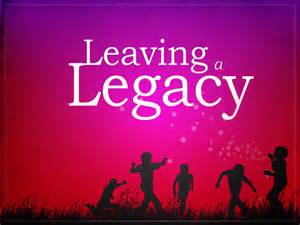Postcolonial theory explores the cultural legacy due to colonialism and imperialism. Post colonialism can be explained in much simpler terms “Imagine this: people come over to your house, while you’re still living there, and decide to settle down. Permanently”, this refers to countries being taken over by force. It then goes on to explain the lasting effect colonialism has on countries even when they regain independence “they’ve been over for so long that your house no longer feels like your home. Worse yet—you might not even remember how things were before these folks came in” (Post Colonialism 2016: online).

The legacy of a country is a key concept of Postcolonial Theory, they ask the question, do we now actually live in a postcolonial world? Many countries inherited the languages of other countries, the religions, the food and the culture. “By the very nature of his or her location the postcolonial subject embodies the contradictions and ambivalence’s of the two cultures” Hayward (2006:pg.297), this refers to the idea of plural identities, they have both the identity of their original culture and a colonized one.
Bell Hooks explores ‘Loving Blackness’, within colonialism black people have often been the ones to face the most harm, due to slavery. The British Empire was built through slavery. Hooks believes black members of society are still classed as different, “most folks within this society do not want to openly admit their blackness” Hooks (1992: pg.10). He found society teaches black people to have a self-hatred for their skin colour “white supremacy ways of thinking allowing this perspective to determine how they see themselves and other black people” Hooks (1992: pg.11), this suggests the slavery involved with colonialism has had a lasting effect on societies view of black people.

Western values refers to the social norms, beliefs and traditions of a European world, the values are often explored in terms of post colonialism. There is the view that the rest of the world would be much better conforming to them. Khalid Hosseini is a famous Afghan- American author he wrote ‘A Thousand Splendid Suns’ and ‘The Kite Runner’ which was also turned into a successful film. Both novels are based in Afghanistan and explore society when it was controlled by the Taliban. Western values are a major focus in both novels and through the film, they explore how the Taliban planned to eradicate all western values. They banned films, music, books, televisions, radios, Western clothes. They made men grow beards, women wear full burkas and banned female education and independence. ‘A Thousand Splendid Suns’, has the character Laila a modern Afghan girl, educated and dating. She is forced into an abusive marriage to an older man and then controlled by the Taliban, her almost Western life is completely eradicated. In both his novels he explores how much better the main characters lives are due to Western values, himself being Afghan- American, seems to appear he is Westernised and reflects on how awful the traditional laws in a country like Afghanistan are.

Overall it appears although we are now classed as a post-colonial world, the effect of colonialism lives on, there is still much racism, history ignores the past and western values are still enforced on other countries through war and violence.
Word Count: 544
References:
• Hayward, S. (2006) Cinema Studies: The Key Concepts. 3rd ed., Andover: Routledge, pg. 297
• Hooks, b. (1992) Black Looks: Race and Representation. Boston: South End Press, pg.10
• Shmoop (2016) Postcolonial theory introduction. Available at: http://www.shmoop.com/postcolonial-theory/ (Accessed: 28 November 2016).
Filmography:
• The Kite Runner, (2007), [Film] America: Mark Forster